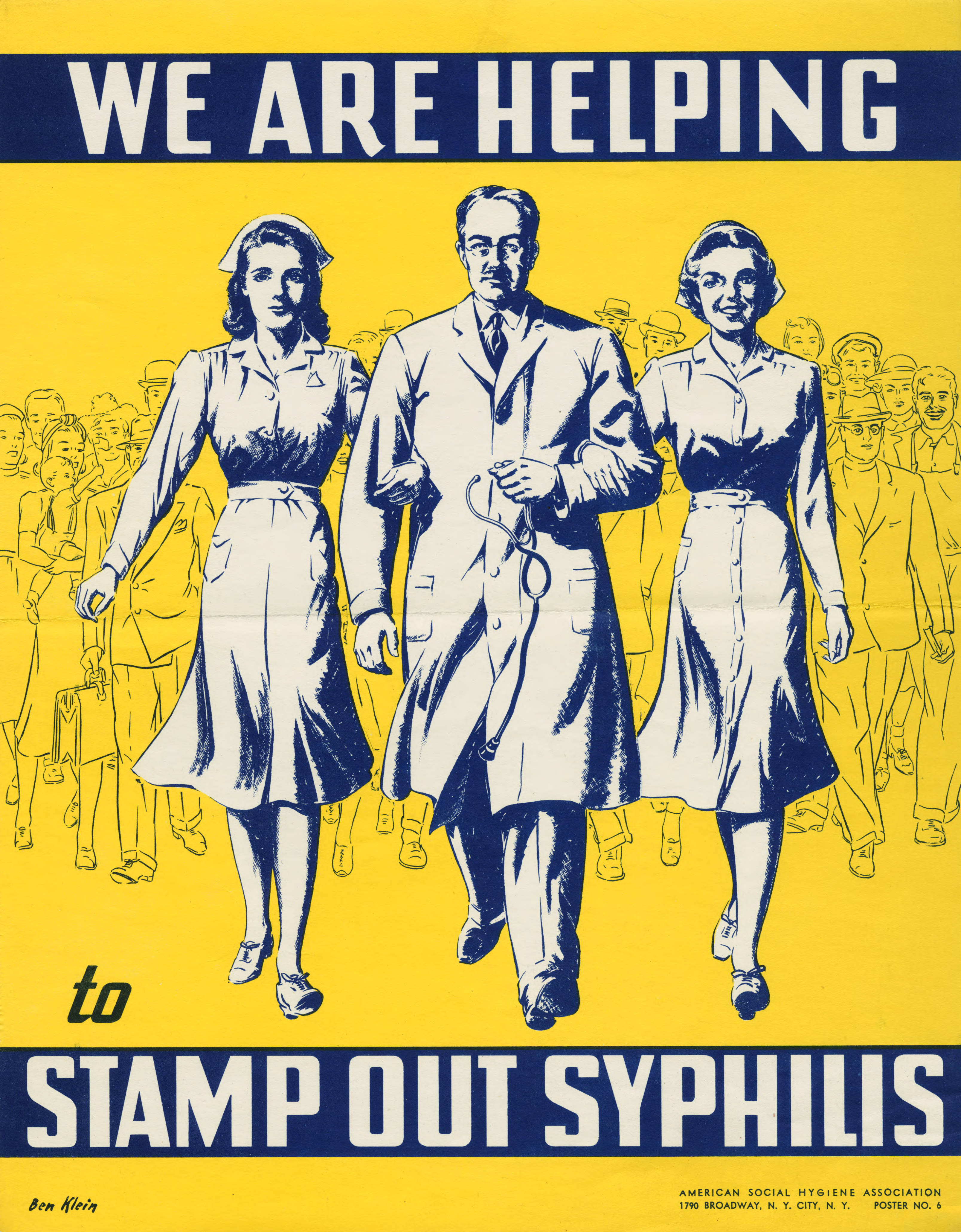Syphilis prevention and sexual health education (1900 to present)
5-6 November 2020 | UNIVERSITY OF STRASBOURG

Programme
Thursday 5th November
Introduction (13:45-14:00)
Session 1: Testing, identifying, detecting (14:00-15:45)
- Ilana Löwy (Inserm - Cermes3) - De « l’hommage à Venus » à une pathologie de négligence : syphilis au Brésil
- Rosanna Peeling (London School of Hygiene and Tropical Medicine) - Screening for syphilis: how can we do better?
- Christian Bonah & Joël Danet (Université de Strasbourg) - Le discours public audiovisuel et la syphilis : de l’enquête policière à l’enquête sociologique
Session 2: Following, registering, tracing (16:15-17:30)
- Erin Wuebker (Queens College, New York) - Taking the Venereal out of Venereal Disease: The 1930s Public Health Campaign against Syphilis and Gonorrhea in the United States
- Christophe Bergouignan (Université de Bordeaux) - Analyse comparée des effets de la prévention des transmissions du VIH par voie sexuelle et par usage de drogues injectées
Film projection and debate (18:00-19:00)
L’ennemi secret by Raymond-Millet J.-K.(France, 1945)
...
Friday 6th November
Session 3: Health and sexual education (9:00-10:30)
- Lukas Herde (Université de Strasbourg) - "Still Got It": STI prevention for the elderly in visual cultures of the early 21st century
- David Simard (Université Paris-Est Créteil) - L'invisibilisation de la syphilis en sexologie et en santé sexuelle à l'époque contemporaine : quelques pistes d'explication
- Mélanie Michaud (Hôpitaux Universitaires de Genève) - L’entretien de santé publique au travers de vraies histoires de patients/partenaires
Session 4: Pre- and post-exposure prophylaxis (11:00-12:30)
- David Rey (Hôpitaux Universitaires de Strasbourg) - Prévention de l’infection par le VIH : quelles places pour la Prophylaxie pré-Exposition et le Traitement Post-Exposition ?
- Philippe Malfrait (AIDES Grand-Est) - La syphilis, un indicateur de l'activité sexuelle d'une population
- Alice Servy (Université de Strasbourg) - Prévenir les infections sexuellement transmissibles au Vanuatu : zoom sur les affiches
About this workshop
Since the 19th century, syphilis has received constant medical attention. For over a hundred years, anti-venereal prophylaxis was at the forefront of the fight against this disease, because known curative treatments, such as mercury or Salvarsan, were often ineffective and associated with serious complications. The situation was reversed during the second half of the 20th century: while the diffusion of penicillin brought about a significant decrease in the prevalence of the disease, the same period witnessed an unprecedented demobilisation of past prevention strategies. Despite coming first both chronologically and in terms of public health, prophylaxis is often relegated to the background once a disease is contained by effective, accessible treatments with limited side-effects. However, a new surge in syphilis cases in Europe in the last few years has led to a renewed interest in prevention. The present Covid-19 pandemic, and before that the AIDS, SARS and Ebola epidemics, have also reminded us about the diversity and limitations of the prevention methods deployed when a disease doesn't yet have a curative treatment: screening and testing; logging and tracing; information and education; vaccine and drug prophylaxis.
This workshop will focus on the issue of prophylaxis, taken in its broadest sense, through an interdisciplinary approach. The aim of this meeting is to bring into dialogue past and present issues related to the prevention of syphilis, both at the individual and societal levels, and to highlight the different strategies and practices designed to prevent the contraction, spread and development of the disease.
This event is part of the research project An interdisciplinary model to explain neverending infectious diseases. The case of syphilis (1859 to the present), supported by the Swiss National Science Foundation.
Practical information
Registration: The event is open to everyone (no registration fees). Registration is compulsory. Please contact Guillaume Linte to register: . If it is not possible to attend in person, a video-link will be sent after your registration.
Working Languages: English and French
Date and venue: University of Strasbourg, Le Patio (Building 5), room 5203, 5-6 November 2020,
Download workshop programme and poster in English or French..

